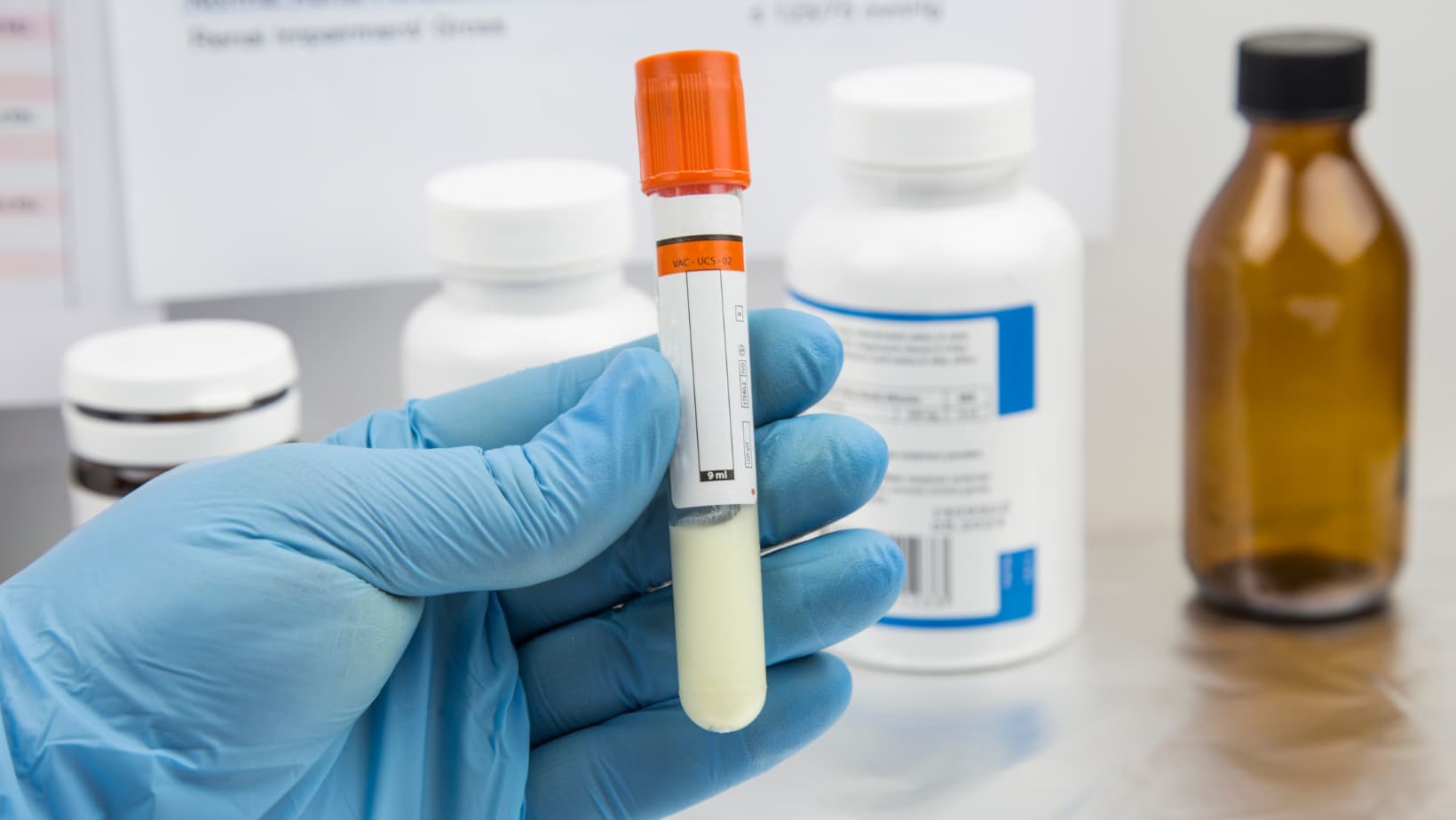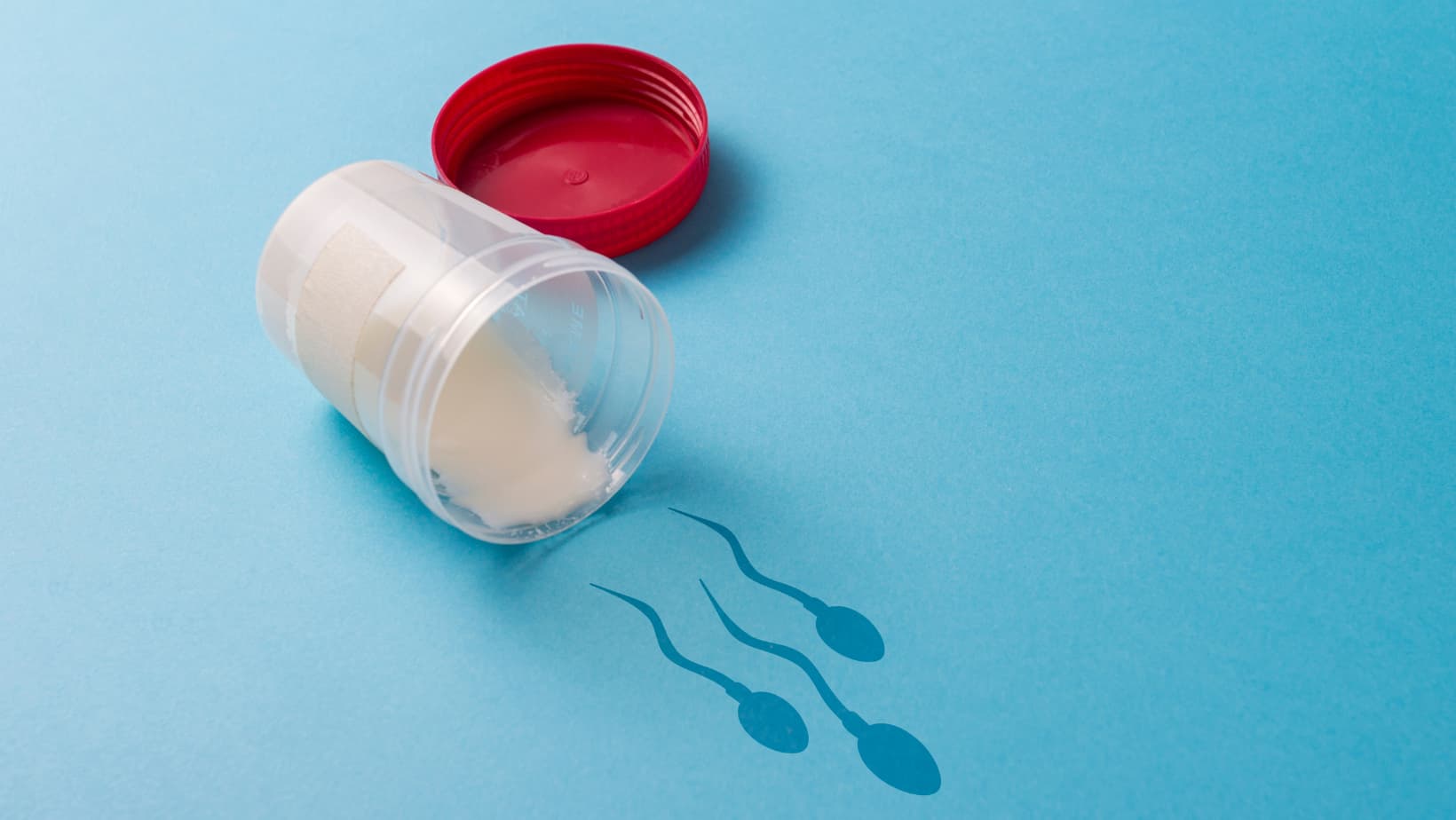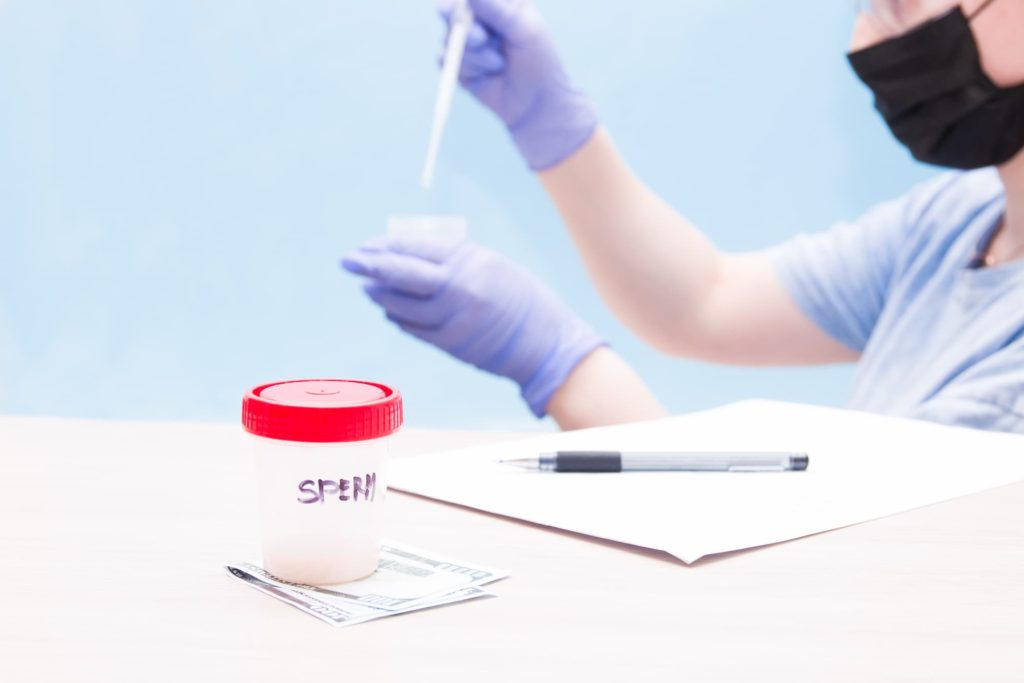At-home sperm test kits are a great tool to assess male fertility without the need for a clinical visit.
With their help, you can discreetly and privately evaluate your sperm count and get valuable insights into your reproductive potential.
In this article, you’ll learn more about these tests and gather enough information to proceed with the next steps in your fertility journey.
What is an at-home sperm test?
At-home sperm tests come in comprehensive kits that provide all the necessary components and instructions for performing the analysis.
With an at-home sperm test, individuals or couples can discreetly collect a semen sample and learn about their status, including sperm count, motility and morphology.
Once the result is out, consult with a healthcare professional for a comprehensive evaluation if you have concerns about fertility or family planning.
Are at-home sperm tests accurate?

Following the instructions carefully during sample collection and handling is crucial to determine an at-home sperm test’s accuracy. These tests can provide reliable results when used correctly, though they may not offer the same level of precision as laboratory-based analyses.
What do at-home sperm tests check for?
Here are three key parameters that at-home sperm tests check for.
Volume
One aspect that at-home sperm tests evaluate is the volume of the semen sample. Semen volume refers to the amount of fluid produced during ejaculation.
At-home test kits can help users to gauge if their volume falls within the normal range.
Concentration
Sperm concentration refers to the number of sperm cells present in each milliliter of semen.
At-home sperm tests provide an estimation of the sperm count, and the higher concentration indicates a greater likelihood of successful fertilization.
Motility
Sperm motility refers to the sperm cells’ ability to move and swim effectively. It plays a vital role in fertilization, as sperm must navigate through the female reproductive tract to reach and penetrate the egg.
At-home sperm tests assess sperm motility by analyzing the percentage of sperm cells that exhibit progressive movement. This information helps determine the quality of sperm and its potential to fertilize an egg.
By checking these parameters, at-home sperm tests provide valuable insights into sperm health and fertility potential.
What are the benefits of at-home sperm tests?

Here are five reasons why at-home sperm tests can be beneficial for you.
Convenience
One of the primary benefits is the convenience they provide. At-home sperm tests allow individuals to perform the test at their own convenience, anytime, anywhere.
This flexibility is particularly beneficial for those with busy schedules or limited access to healthcare facilities.
Privacy
Privacy is a significant advantage of at-home sperm tests.
Performing the test in the comfort of your own home ensures a convenient, comfortable and discreet experience. This eliminates potential discomfort or embarrassment that may arise from discussing fertility concerns in a clinical setting.
Cost-effectiveness
At-home sperm tests are often more cost-effective compared to traditional laboratory-based semen analyses.
They offer a more affordable option for individuals or couples who want to gain preliminary insights into sperm health before considering more extensive fertility evaluations.
Early screening
At-home sperm tests provide an opportunity for early screening of male fertility. They can help identify potential issues or abnormalities in sperm count, motility, or other parameters, allowing individuals to take proactive steps towards addressing any concerns or seeking appropriate medical advice in a timely manner.
Empowerment and education
By using at-home sperm tests, individuals can actively participate in monitoring their reproductive health. These tests provide valuable educational insights into sperm health, fertility potential, and factors that may affect reproductive success.
Knowing all these can empower you to make informed decisions about family planning and seek appropriate support or treatment when necessary.
Do experts recommend at-home sperm tests?

Experts in the reproductive field have varied opinions on the use of at-home sperm tests.
Many acknowledge that at-home sperm tests can serve as initial screening tools for individuals or couples who want to gain basic information about their fertility potential.
However, you shouldn’t consider at-home sperm tests as a substitute for an evaluation by a healthcare professional. They can provide a more thorough assessment of male fertility, including a comprehensive medical history review, physical examination and laboratory-based semen analysis.
These assessments can provide a more accurate and detailed understanding of individual fertility potential and help guide appropriate treatment or interventions if needed.
When you should see a doctor

We recommend that you consult with a doctor if you find yourself in any of these situations
- You receive an abnormal or concerning results from an at-home sperm test
- You and your partner have been unsuccessfully trying to conceive for a significant period of time
- You have a known medical condition that may affect fertility
- You or your partner are over the age of 35 and have been trying to conceive for six months or longer without success
- You have personal concerns about fertility or a family history of infertility.
Seeking medical advice allows for a comprehensive evaluation, personalized guidance and appropriate interventions or treatments if necessary.
Takeaway
At-home sperm tests offer a convenient and private way to assess male fertility and provide valuable insights into sperm health. These tests allow individuals or couples to screen for important factors such as sperm count, motility and volume from the comfort of their own homes.
They’re useful as a starting point that provides baseline data which you can show when talking with your medical provider.
Taking control of your reproductive health journey begins with knowledge, proactive steps, and professional support to help you make informed decisions about your fertility and family planning.




















































